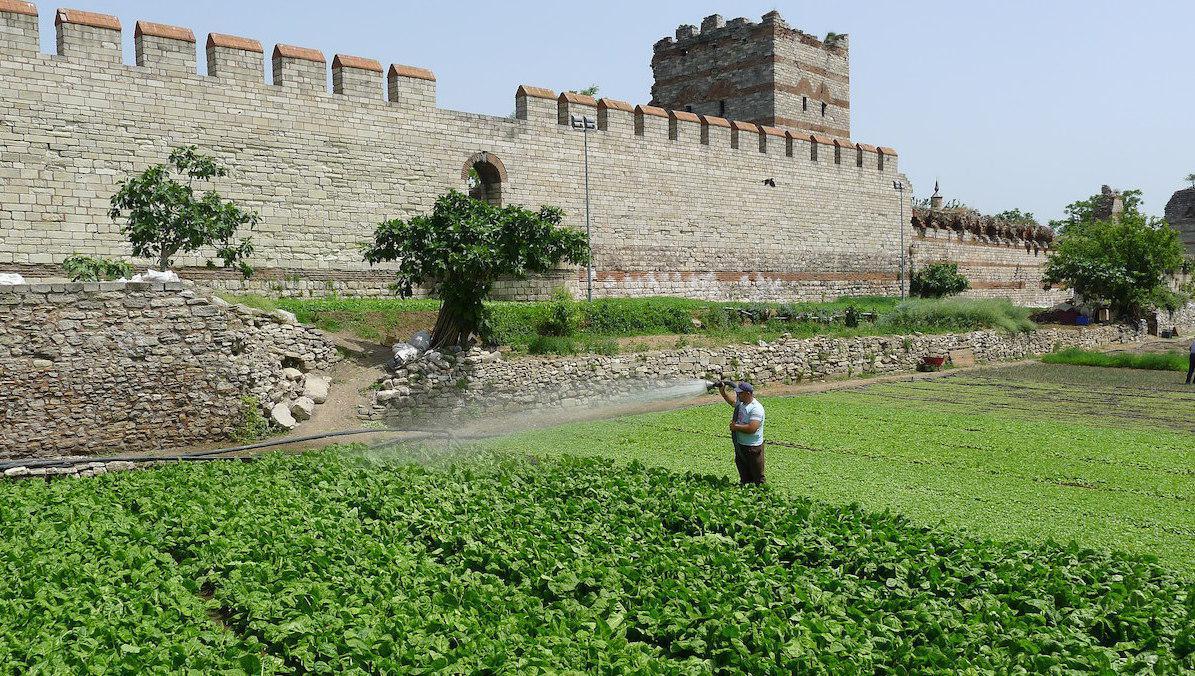
Photo: Axel Timpe
Urban Agricultural Heritage:
Since the advent of the new Millennium, Urban Agriculture has become an important tool for the sustainable planning of cities, thus helping to combat the growing global challenges of urbanization and declining resources. However, it is often forgotten that Urban Agriculture is not a new field, but one with a long established history and tradition. Despite this, in many parts of the World, valuable agricultural heritage is still being neglected and even destroyed, especially in emerging and developing countries. In recent years a number of key initiatives and developments have been reviving interest in Urban Agricultural Heritage and examining how such age old practices might be adapted to the new challenges and demands of sustainable development. Some key initiatives are:
Herrenhausen Conference "Urban Agricultural Heritage and the Shaping of Future Cities:
The Herrenhausen Conference "Urban Agricultural Heritage and the Shaping of Future Cities" (May 6-8, 2019) delivered the first global survey of projects and initiatives dealing with traditional forms of food production in cities and was the network's official starting point. Experts from science, international organizations and civil society approached the Conference’s theme from different perspectives to create a better understanding and academic awareness of the agricultural heritage of cities.
Based upon this conference, the Urban Agricultural Heritage Network, through the INSUAH Project, will look ahead and elaborate new approaches for management and research in the field of global urban agriculture. For more information, see the conference website. This includes a link to an atlas of important UA Heritage sites in Europe and beyond:
INSUAH - Integrated Study on Urban Agriculture as Heritage:
Given global challenges such as urbanisation, limited resources and food security, urban agriculture has turned from a phenomenon considered to be peripheral to a globally acknowledged instrument for sustainable development. Previously, urban agriculture initiatives have focused around creating new systems. By contrast, the qualities of inherited and vernacular systems of urban agricultural production and its benefits (e.g. for food supply, income generation, social cohesion, biodiversity, and urban metabolism) have not been the subject of extensive research.
To address this gap, the team will share case study based experiences from different urban regions: Sao Paulo (Brazil), Havana (Cuba), Bandung (Indonesia), Tokyo (Japan) and Nuremberg (Germany).
The project will combine historical investigations, spatial analysis and living lab methods to detect, map and define the heritage and its associated values and threats, and to raise awareness of the heritage and elaborate targeted planning and policy agendas.
The case study findings will be integrated in a parallel metalevel process by focussing upon a living heritage approach and taking into account ecosystem, contextual and participatory perspectives. The INSUAH project is being supported by the Volkswagen Foundation and will kick off in Spring 2022 – it will built upon foundations laid in 2019 through the Herrenhausen Conference
https://www.la.rwth-aachen.de/go/id/pjzyh?lidx=1#aaaaaaaaaapkack
Globally Important Agricultural Heritage Systems (GIAHS):
Heritage aspects of Urban Agriculture are also recognised through the FAO’s network of Globally Important Agricultural Heritage Systems (GIAHS). These are very distinct from conventional heritage sites or protected landscapes as they represent living dynamic systems which are strongly interwoven with local culture and the economy. A GIAHS is a living, evolving system of human communities in an intricate relationship with their territory, cultural or agricultural landscape or biophysical and wider social environment. For further detailed information and a list of global sites see the FAO GIAHS website:
